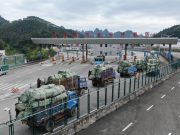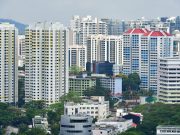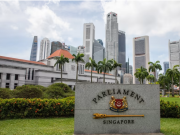(Singapore, July 14, 2020) Singapore’s GDP has contracted by 12.6% on a year-on-year basis in the second quarter of 2020, Singapore’s Ministry of Trade and Industry announced today.
This is much due to the Circuit Breaker (CB) measures that were implemented from 7 April to 1 June to slow the spread of COVID-19, which included the suspension of nonessential services and closure of most workplace premises, as well as weak external demand amidst a global economic downturn precipitated by the COVID-19 pandemic.
On a quarter-on-quarter seasonally-adjusted annualised basis, the economy shrank by 41.2 per cent in the second quarter.
The manufacturing sector grew by 2.5 per cent on a year-on-year basis in the second quarter, slower than the 8.2 per cent growth in the previous quarter.
Growth during the quarter was primarily due to a surge in output in the biomedical manufacturing cluster, officials said.
On the other hand, weak external demand and workplace disruptions during the CB period weighed on output in the chemicals, transport engineering, and general manufacturing clusters.

Construction output weakened on account of the CB measures which led to a stoppage of most construction activities during the period, as well as manpower disruptions arising from additional measures to curb the spread of COVID-19, including movement restrictions at foreign worker dormitories.
On a quarter-on-quarter seasonally-adjusted annualised basis, the construction sector shrank by 95.6 per cent in the second quarter, far worse than the 12.2 per cent contraction in the preceding quarter.
The services-producing industries contracted by 13.6 per cent on a year-on-year basis in the second quarter, steeper than the 2.4 per cent decline in the previous quarter.
Within services, tourism-related sectors like accommodation and the air transport sector were severely affected by global and domestic travel restrictions, which brought visitor arrivals and air travel to a standstill.
Other outward-oriented services sectors such as wholesale trade and water transport were adversely affected by a fall in external demand as many countries around the world grappled with the COVID-19 pandemic.
Meanwhile, domestically oriented services sectors such as food services, retail, and business services were significantly affected by the CB measures.















































